
New Year Honours 2023
The New Year Honours 2023 Lists have been published, marking the achievements and service of extraordinary people across the UK, including members of the University of Oxford.
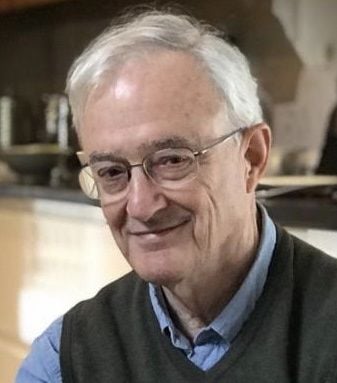 Professor John Finnis has been appointed a CBE for services to Legal Scholarship.
Professor John Finnis has been appointed a CBE for services to Legal Scholarship.Professor John Finnis, Professor of Law and Legal Philosophy Emeritus, has been appointed a CBE (Commander of the Order of the British Empire) for services to Legal Scholarship. He is an Honorary Fellow of University College, where he studied (as a Rhodes Scholar for South Australia) for the D.Phil. 1962-5, and tutored in Law from 1966 to 2010. Oxford University Press published his Natural Law & Natural Rights in 1980 (second edition in 2011), Fundamentals of Ethics in 1983, Nuclear Deterrence, Morality & Realism in 1987, Aquinas: Moral Political & Legal Philosophy in 1998, and in 2011 Collected Essays of John Finnis in five volumes. From 1972 to 1989 he was Rhodes Reader in the Laws of the British Commonwealth and the United States. From 1976-78 he was seconded to be the Professor of Law in the University of Malawi. He is a Fellow of the British Academy in both the Law and the Philosophy sections.
Professor Finnis said: ‘It is good that this award bears the name of a great and essentially beneficent institution which was conceived and pursued in a spirit of service, and in which the University of Oxford and University College from the eighteenth to the twentieth century had a highly significant role in advancing religion and learning, philosophy, sciences and law, across so many regions of the world.’
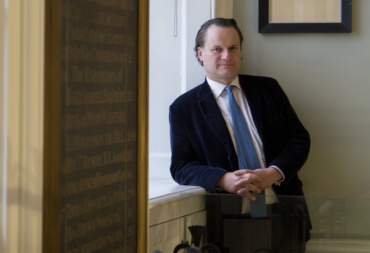 Professor Edward Harcourt has been appointed a MBE for services to Interdisciplinary Research.
Professor Edward Harcourt has been appointed a MBE for services to Interdisciplinary Research. Edward Harcourt, Professor of Philosophy at the University of Oxford, has been appointed a MBE for services to Interdisciplinary Research.
Edward Harcourt is a Professor of Philosophy and Fellow by Special Election at Keble College. His research is in ethics, in particular in moral psychology. He has published on topics including neo-Aristotelianism and child development, the ethical dimensions of psychoanalysis and psychotherapy, the moral emotions, love and the virtues, Nietzsche’s ethics, the philosophy of mental health and mental illness, literature and philosophy, and Wittgenstein. From 2018-22, Professor Harcourt served as Director of Research, Strategy and Innovation at the UKRI Arts and Humanities Research Council (AHRC). He is a director of the biennial Oxford Summer Schools in Philosophy and Psychiatry and in addition to his Faculty and college roles is, as of October 2022, Professor of Philosophy in the University’s Department of Psychiatry, where he leads on Patient and Public Involvement at the NIHR Oxford Health Biomedical Research Centre.
Professor Harcourt said: 'While there are many ways of doing good research, I’m a firm believer in the value of interdisciplinarity as it is often on the boundaries between disciplines that new ideas are formed. It is gratifying to be honoured for something I was not only able to support while at AHRC but which continues to loom large in my own work.'
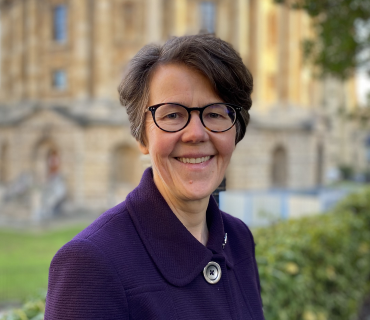 Professor Marian Knight has been appointed a MBE for services to Maternal and Public Health.
Professor Marian Knight has been appointed a MBE for services to Maternal and Public Health.Professor Marian Knight, Professor of Maternal and Child Population Health at the National Perinatal Epidemiology Unit, University of Oxford, has been appointed a MBE (Member of the Order of the British Empire) for services to Maternal and Public Health. Professor Knight's research focuses on the care and prevention of severe complications of pregnancy and early life and addressing disparities in outcomes for women and babies from different population groups.
She established the UK Obstetric Surveillance System (UKOSS) in 2005 to conduct national studies of severe morbidities in pregnancy and leads the MBRRACE-UK national Confidential Enquiries into Maternal Deaths and Morbidity. Her work demonstrating inequalities in maternal mortality amongst women from Black, Asian and Mixed ethnic groups has led to a number of actions to improve care for pregnant women from ethnic minority groups. She also led the national study of pregnant women admitted with COVID-19 in pregnancy, contributing to the pandemic response to help ensure pregnant women receive an equitable standard of care to the non-pregnant population.
Professor Knight said: 'I am delighted to be awarded this honour which reflects the importance of maternal and child health and the work of a wide collaborative team.'
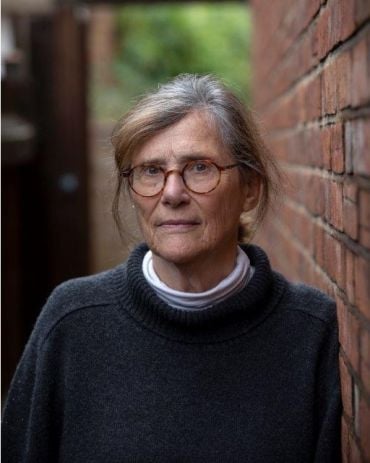 Professor Dame Hermione Lee has been appointed a GBE for services to English Literature. Image credit: Tom Pilston.
Professor Dame Hermione Lee has been appointed a GBE for services to English Literature. Image credit: Tom Pilston.
Professor Dame Hermione Lee, Emeritus Professor of English Literature at the University of Oxford, has been appointed a GBE (Dame Grand Cross of the Order of the British Empire) for services to English Literature.
Professor Lee is a literary biographer, author of books about Virginia Woolf, Edith Wharton, Penelope Fitzgerald, Tom Stoppard, and others. She was the first woman to be appointed to the Goldsmiths’ Chair of literature at Oxford in 1998, and the first woman to be appointed President of Wolfson College Oxford, where she worked from 2008 to 2017, when she retired. While she was at Wolfson she founded, and still helps to direct, the Oxford Centre for Life-Writing, which now has an international reputation as a centre for all kinds of authors, scholars, students, and members of the general public working on life-writing. She was made a CBE in 2003 and a Dame in 2013.
Professor Lee said: ‘I am delighted to be in the same list as the pioneering women judges Baroness Higgins and Baroness Butler Sloss, the Labour politician Baroness Hayman, and the engineer and nuclear power expert Dame Sue Ions. I am especially glad to know that the Australian soprano Nellie Melba, the actress Ellen Terry, and the women’s rights campaigner and suffragist Millicent Fawcett all received the Honour in the 1920s.’
Lord Mendoza has been appointed CBE for Services to Arts and Culture
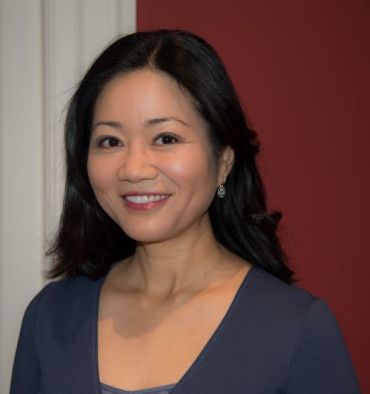 Dr Linda Yueh has been appointed CBE for Services to Economics
Dr Linda Yueh has been appointed CBE for Services to Economics
She has written/edited 11 books including a textbook, 'Macroeconomics', and is the Series Editor for the Routledge Series on Economic Growth and Development books. She has published widely in leading journals and served as guest editor of World Development and the Oxford Bulletin of Economics and Statistics. Dr Yueh was appointed as an Adviser to the UK Board of Trade in 2020. In 2021, she was appointed by HM Treasury as a member of the Independent Review Panel on Ring-fencing and Proprietary Trading.
Dr Yueh said: 'I am humbled and deeply honoured. I will continue to contribute in various ways, including deepening our knowledge of economics and how it can improve standards of living as well as continuing to make economics accessible and applicable to policymaking. Having started out as a postgraduate student at the Hall, I am grateful to my wonderful colleagues at Oxford who have been supportive and stimulating throughout my career.'
 COVID-19 vaccination during pregnancy offers new insight into preeclampsia prevention
COVID-19 vaccination during pregnancy offers new insight into preeclampsia prevention
 Expert Comment: Should the UK relax clean energy targets?
Expert Comment: Should the UK relax clean energy targets?
 Existing hospital analysers offer a low-cost method to screen for fake vaccines
Existing hospital analysers offer a low-cost method to screen for fake vaccines